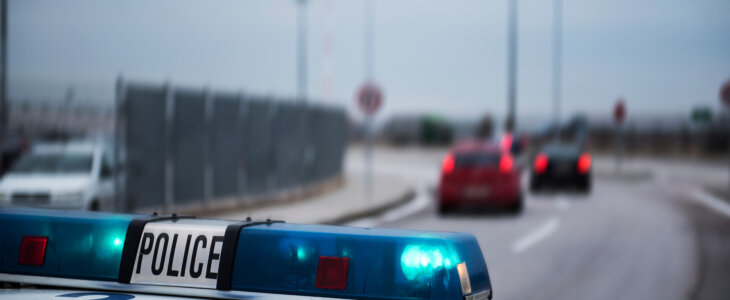What happens if you are injured in Georgia from a high-speed police chase? Can you sue law enforcement for your injuries?
Can you Sue Law Enforcement
Law enforcement in Georgia is protected by what is known as qualified immunity. This sometimes makes it difficult but not impossible to sue.
Qualified immunity is a legal doctrine that protects government officials from being sued for discretionary actions while working within their official capacity. The rational for this immunity is to allow an officer to perform his/her job without fear of lawsuits.
In other words, while on the job, law enforcement needs to be able to act quickly to protect people without fear of being sued for their actions. There are times, however, when law enforcement may act negligently, or act with malice or an intent to injure, in which case, qualified immunity likely would not apply, allowing a person to sue law enforcement for their injuries.
The Law Regarding a High-Speed Police Chase
Here’s how the Courts have explained when a citizen can sue when they are injured or someone is killed because of a police chase:
the law enforcement officer’s pursuit shall not be the proximate cause or a contributing proximate cause of the damage, injury, or death caused by the fleeing suspect unless the law enforcement officer acted with reckless disregard for proper law enforcement procedures in the officer’s decision to initiate or continue the pursuit.
This statement of the law comes from a Georgia statute, O.C.G.A. § 40-6-6(d)(2). In other words, a person might be able to sue a member of law enforcement if they are injured in a high-speed chase provided that:
- The passenger or bystander was completely innocent; and
- The officer, when choosing to initiate and continuing to engage in a high-speed pursuit of a suspect, did so with reckless disregard of proper law enforcement procedures. Some examples of recklessness might be choosing to chase a suspect without turning on lights and sirens to alert other drivers, or driving at high speeds through a residential neighborhood where people are out and about.
High speed police chases. Are they worth it?
Police chases kill hundreds of people each year, mostly innocent bystanders or passengers in the car being chased. Last week, Macon witnessed the death of a Mercer University student who was studying biology with the dream of going to medical school, but who happened to be the passenger in a vehicle that crashed while being chased by a Monroe County sheriff’s deputy.
According to a study done by USA Today there were 11,506 people killed in high speed pursuits from 1979-2015. This included 139 police; 6,301 fleeing drivers; 2,456 bystanders; and 2,610 passengers. Of those pursuits, the incident which led to the chase was the result of the following: traffic offenses (62%); nonviolent felonies (19%); misdemeanors (8%); violent felonies (8%); and officers assisting other police departments (3%). Of course, these statistics include only deaths; they do not take into account those persons injured from such pursuits.
Macon & Warner Robins Policies
Georgia state law allows individual jurisdictions to set its own pursuit policies for determining when to engage in pursuits.
Both Bibb and Houston Counties give officers some discretion of when to pursue a fleeing vehicle. Some things deputies are to consider include the nature of the offense, their surroundings, such as the location, weather and traffic conditions, and the potential danger to the public if the person is not apprehended, as well as the likelihood of being able to arrest the suspect at a later date.
Depending on the situation and level of training, officers may or may not be able to use other tactics to stop a driver. If trained to do so, they may be given permission to use Stop Sticks, a device placed on the road meant to puncture a vehicle’s tires, Rolling Roadblocks, or a Pursuit Intervention Technique (PIT), which forces a vehicle to turn sideways, causing the driver to lose control and stop.
Police are responsible for keeping the public safe. But sometimes, high-speed chases put us in danger. Officers must weigh the reasons for the pursuit – minor infraction or major crime? Is the person being chased a greater danger to the public than the actual chase itself? Will the chase keep the public safer, or will it put people in greater danger?
Gautreaux Law has seen the heartache and devastation when someone is injured or killed following a high-speed chase. These cases are complex. One minor mistake can prevent someone from being able to sue an officer after being injured in a high-speed police chase. It takes experienced attorneys, such as Gautreaux Law, to properly handle them. We’ve successfully recovered substantial amounts for victims and their families in police chase cases. Contact us today for a free evaluation. 888-876-6935 or 478-238-9758


